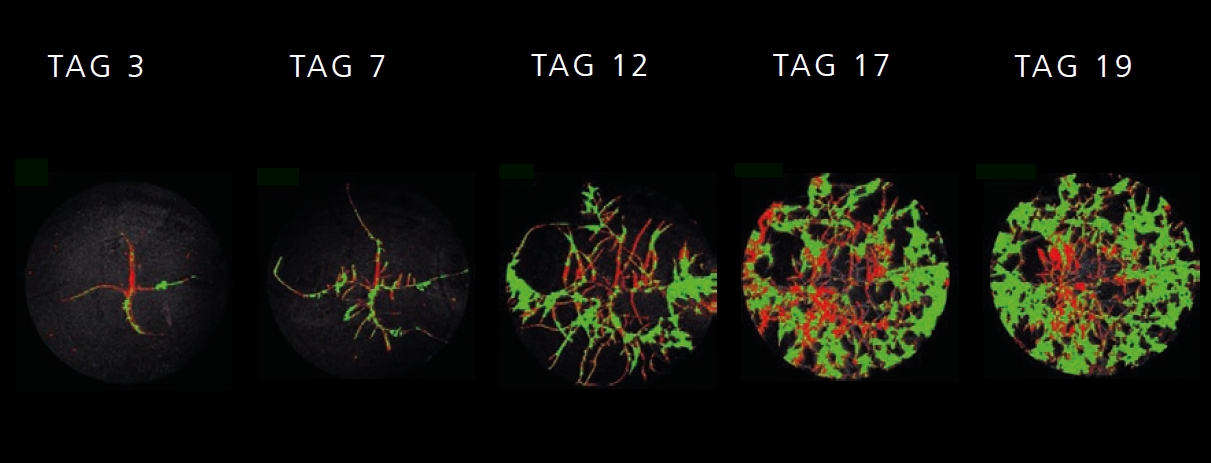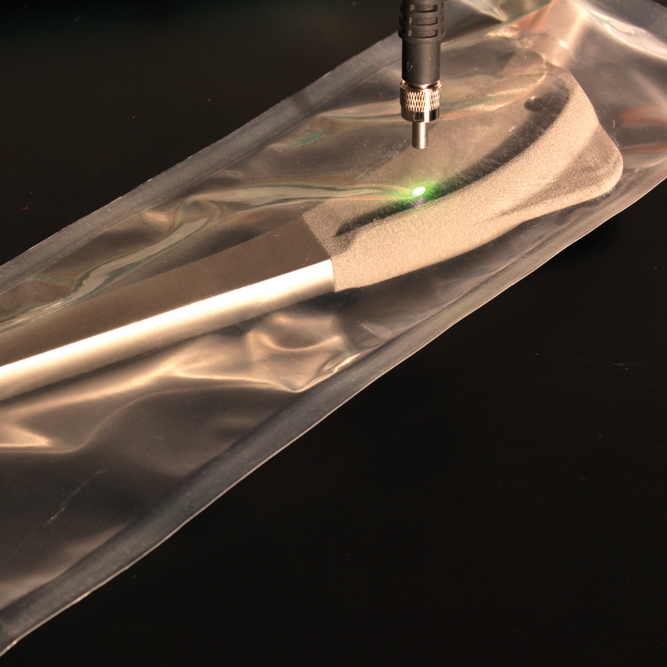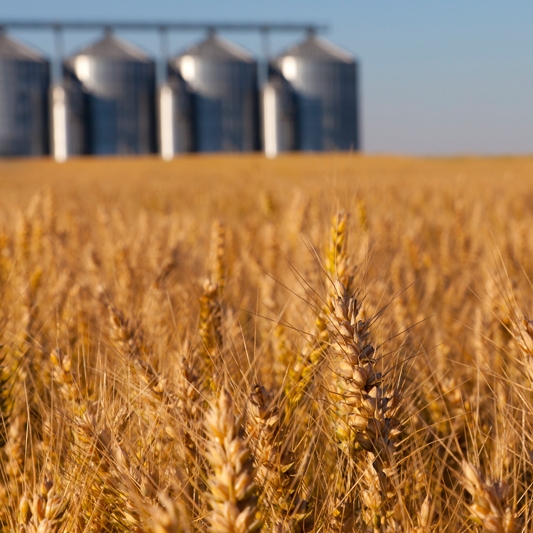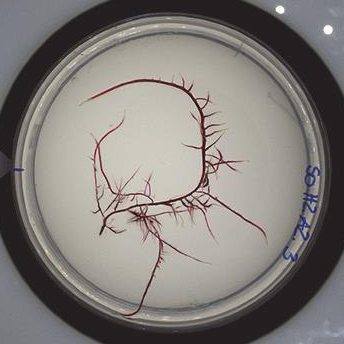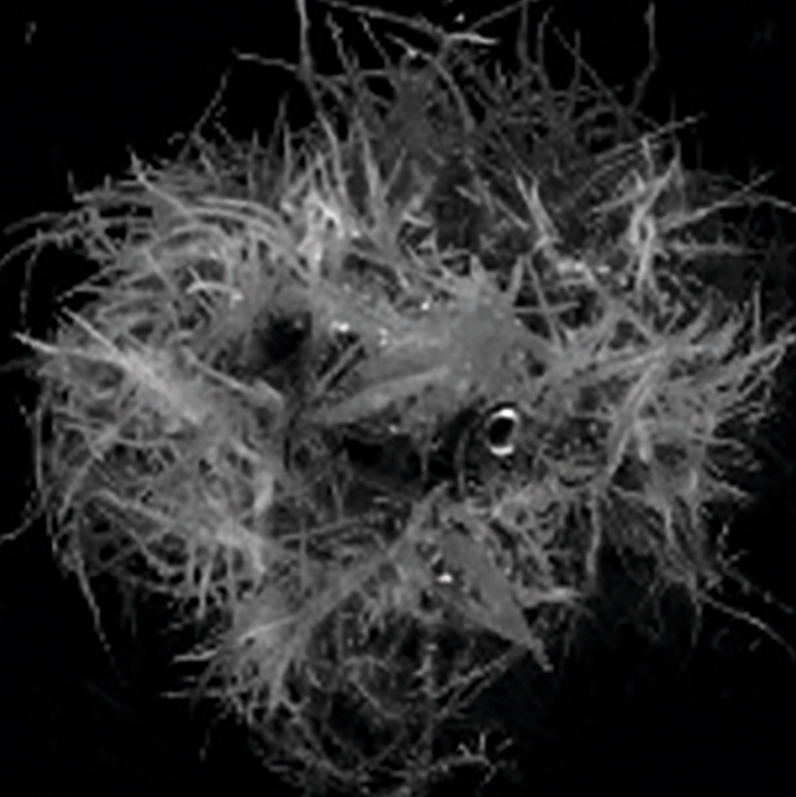
Bio- and medical technology

For the pharmaceutical and food industries, proving the purity of products and raw materials is an essential task. Fraunhofer IKTS transfers and implements the latest acoustic and optical diagnostic methods for industrial applications in systems for condition monitoring in bio- and medical technology. The aim is to increase quality standards without affecting standardized processes and procedures.
Proof of sterilization for medical products
Irradiating surfaces with electrons (e-beam) is a successful method for sterilizing sensitive medical products made from thermolabile or functional biological materials.
Fraunhofer IKTS offers a novel optical inspection system to monitor the sterilizing process, which enables the indirect test of the electron beam sterilization. Its core elements are ceramic pigments in the packaging material which change their optical properties when treated with e-beam. The electron dose introduced is carried out by reading the optical pigment properties, either with a hand-held scanner or integrated into the process. In contrast with traditional solutions, e.g. film dosimeters, the evaluation does not have to take place after the process. It can be performed as the sterilizing process is taking place. This makes it possible to integrate the proof of irradiation into the e-beam unit. With a spatially resolved quality control of the irradiation procedure, it is also possible to perform targeted post-sterilization on defined surface areas.
Services offered
- Client-specific measuring and monitoring systems, from hand-held scanners to in-line tests
- Integration into existing process lines
- Feasibility studies and scientific consulting
Monitoring of grain depots
The sawtoothed grain beetle, the Indian meal moth, the flour beetle, the corn weevil, the lesser grain borer: pests such as these constitute a huge problem for agricultural businesses which store grain. They destroy vast amounts of food and grain reserves. It is therefore very important for farming businesses to be able to detect pest infestations in order to take appropriate measures.
Fraunhofer IKTS offers monitoring solutions for grain storage and associated transport systems. Biological signals from pests, such as feeding or crawling noises, are detected and classified with the help of algorithms. IKTS systems are based on methods of artificial intelligence (AI) and can make statements on the extent of the infestation, the type of pest and its development state (e.g. larvae/beetle).
Services offered
- Sensors and systems for pest detection
- Customized systems for the monitoring of grain depots and transport systems
Monitoring of biomaterials
As resources are becoming costly and less available in the future due to population growth in developing and emerging economies, as well as demographic changes in industrial nations, the competition for arable land increases. This is why more and more research and development activities focus the industrial production of plant-based cell and tissue cultures in bioreactors. These allow for the production of active agents and additives for use in the pharmaceutical, cosmetic and nutraceutical industries. The efficient management of bio-technological processes for such cultivation requires biomass concentration and growth kinetics to be determined accurately.
Hairy root cultures of plant-based secondary metabolites (substances with strong pharmaceutical and nutritional effect) are extremely important for enzyme recovery. The fact that their root segments are distributed unevenly means that it has been impossible to determine biomass accurately with commercially available methods until now.
With laser speckle photometry (LSP), Fraunhofer IKTS offers a non-invasive method for determining biomass concentration as well as various morphology parameters in heterogeneous biotechnological systems. The method works by identifying the “fracturing” of the biomass or hairy roots at a specific point in time. Root activity is then assessed using the speckle contrast. Thus, LSP as applied by Fraunhofer IKTS enables a more efficient recovery of active agents.
Services offered
- Development of customized biomonitoring systems including hardware and software
- System integration into existing process lines
- Feasibility studies and scientific consulting
- Measuring services
